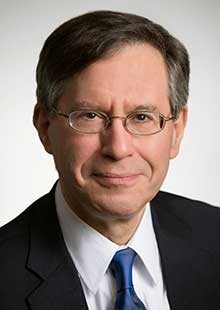Professor Gewirtz Delivers Lecture to Peking University Law School
Paul Gewirtz, the Director of Paul Tsai China Center at Yale Law School, delivered a Zoom lecture at Peking University Law School on December 8, 2020, titled “Law as Foundation, Lawyers as Leaders.”

The second part of Gewirtz’s lecture moved from law to lawyers, arguing that lawyers have distinctively important roles to play today as leaders, both domestically and internationally. The best lawyers have a strong capacity to lead, he said, not only to use technical expertise to assist clients. They also have not only an expert’s knowledge of law, but other characteristics — skills of analysis, persuasion, and problem-solving; an understanding of how institutions work; a commitment to fairness; and a broad exposure to large policy issues — that can make them excellent leaders in many different fields. The unusually broad roles lawyers play as leaders in the United States may have roots in U.S. history, but this U.S. experience is relevant today worldwide.
In his conclusion, Gewirtz argued that the best law schools today should see themselves as training future leaders, and law students today should think of themselves as potentially future leaders, contributing broadly and wisely to their communities and to the larger world.
Paul Gewirtz is the Potter Stewart Professor of Constitutional Law at Yale Law School. He teaches and writes in various legal and policy fields, including constitutional law, U.S. foreign policy and law, U.S.-China relations, Chinese law, federal courts, law and literature, antidiscrimination law, and comparative law.


